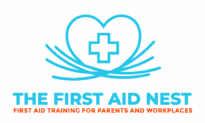A Febrile Convulsion in a Small Child
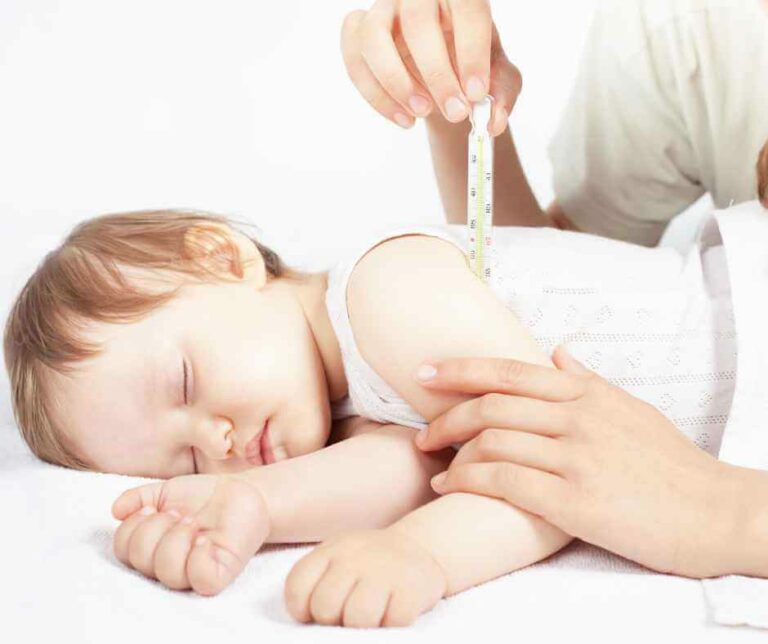
A Febrile convulsion in a small child
Febrile convulsions are the most common type of seizure in children. They usually happen when a child has a fever, and they’re pretty scary for parents to witness. But don’t panic!
In this article, we’ll go over what febrile convulsions are, what causes them, and what you can do if your child has one.
What is a febrile convulsion?
A febrile convulsion is a seizure that occurs in children when they have a fever. Febrile convulsions are also known as febrile seizures. They are the most common type of seizure in children and usually happen when the child has a temperature of 38°C or higher. Febrile convulsions usually last for less than five minutes and most children recover from them quickly and without any lasting effects.
Most children who have a febrile seizure will be between age 6 months and 5 years, and will outgrow them by the time they reach school age.
What are the symptoms of a febrile convulsion in children?
A febrile convulsion is a seizure that can occur in children when they have a high fever. Febrile convulsions are the most common type of seizure in young children. They usually happen when a child has a fever of 38 degrees or higher.
Most febrile convulsions last for less than five minutes and generally do not cause any long-term problems. However, they can be scary for parents and caregivers to witness. It is important to know what to do if your child has a febrile convulsion.
If your child has a febrile convulsion, try to stay calm. It is important to remember that febrile convulsions are almost always benign and do not cause any harm to the child. Do not try to hold your child down or put anything in their mouth.
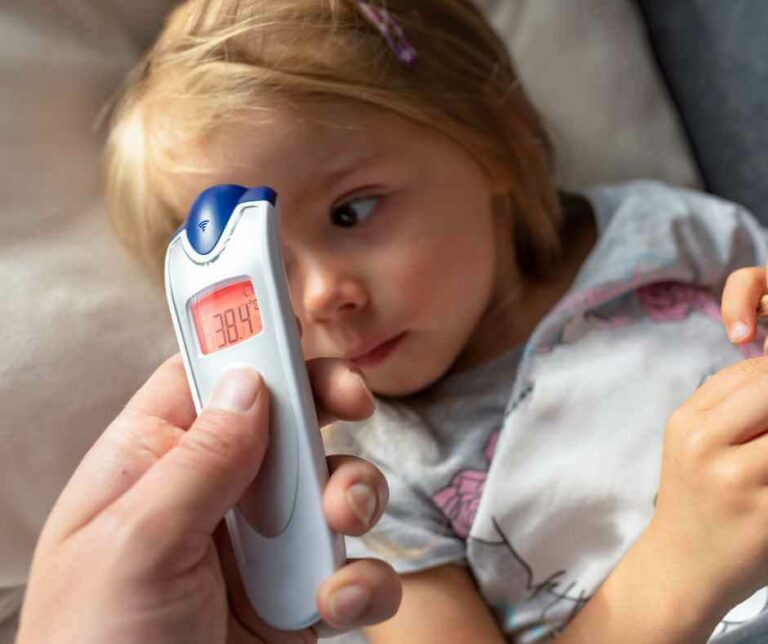
Call emergency services if the seizure is the first one, lasts longer than five minutes or if your child has multiple seizures. Otherwise, you should take your child to the doctor to be checked out as soon as possible.
What is the treatment for a febrile convulsion in children?
You can’t necessarily treat a febrile convulsion, but there are things you can do to make your child more comfortable afterwards. The most common treatment is to give the child paracetamol or ibuprofen, although it has not been proven that this can prevent a seizure. If the child has a seizure that lasts longer than five minutes, or if the child has multiple seizures, then medical attention should be sought immediately.
How can I prevent my child from having a febrile convulsion?
There is no proven treatment to be able to prevent a febrile convulsion. Cool cloths on the forehead, paracetamol and ibuprofen and sips of fluid may help keep the child more comfortable, but will not prevent the febrile convulsion. If your child has had a febrile convulsion before, talk to your doctor about getting a seizure action plan for family and daycare.
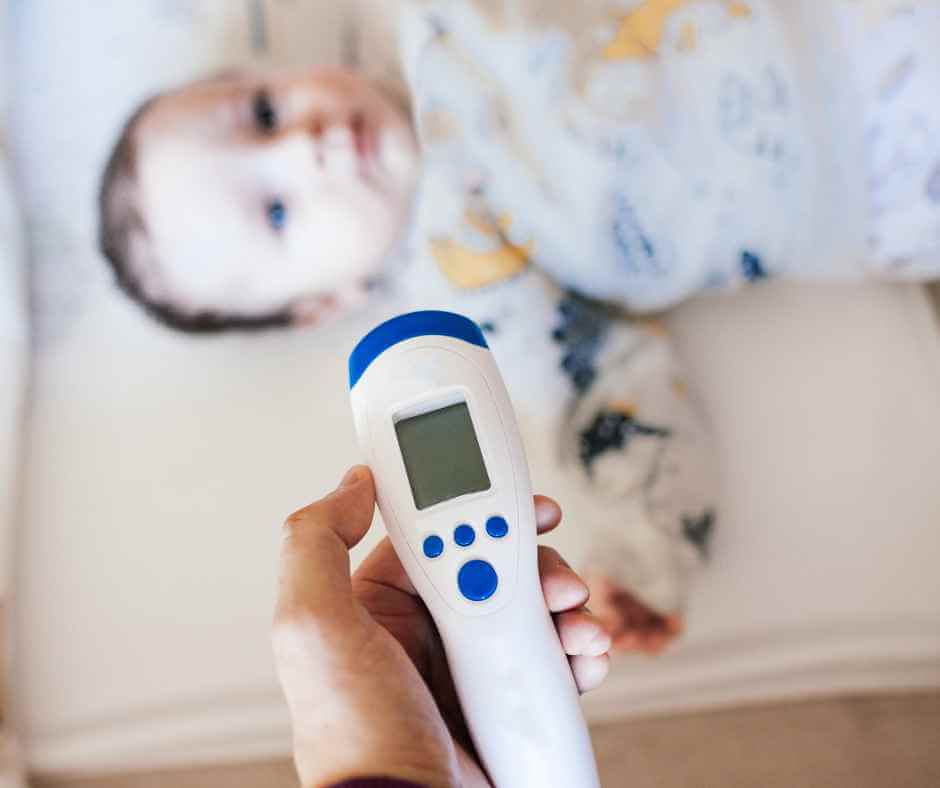
What causes febrile seizures in children?
There are many things that can cause a febrile seizure in children, but the most common cause is a fever.
We still don’t really know why these seizures occur, but there may also be a genetic link, so it’s worth knowing as a parent if you had febrile convulsions as a child.
If your child has a febrile seizure, it is important to call emergency services immediately and then stay with your child until help arrives.
What are the symptoms of a febrile convulsion?
The seizure is usually brief and lasts for less than five minutes.
- They may become stiff in the arms and legs and twitch or convulse
- They may lose consciousness
- They may wet or soil themselves
- They might be sick or foam at the mouth
- Eyes may roll back
It typically occurs in children between the ages of six months and five years. Febrile convulsions are generally not harmful and do not cause any long-term problems. However, they can be frightening for parents and caregivers. If your child has a febrile seizure, it is important to stay calm and call emergency services immediately.
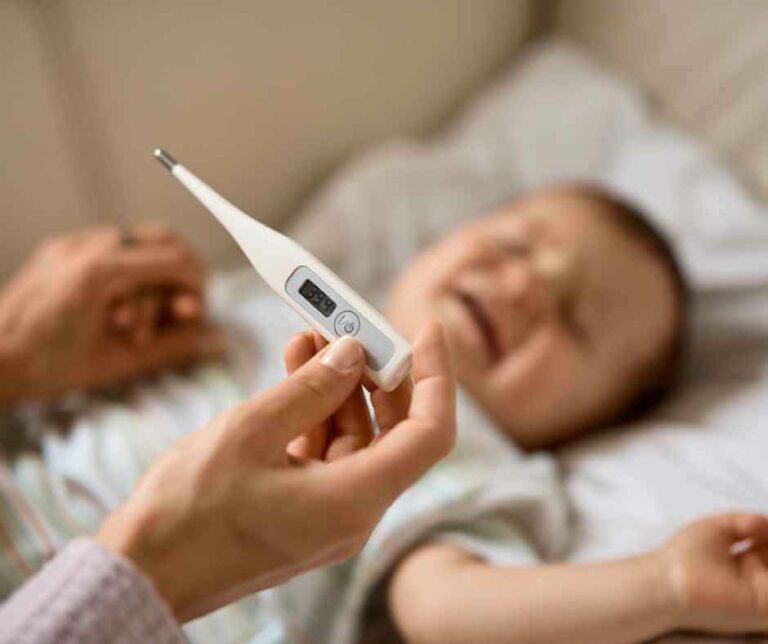
When should I seek medical help for my child’s seizure?
If your child has a seizure, it is important to seek medical help right away. This is especially true if the seizure is the first one they have had, if it lasts longer than five minutes or if your child has multiple seizures.
How are febrile seizures treated?
Febrile seizures are treated by managing the fever and preventing future seizures. Treatment for a febrile seizure may include:
- Paracetamol or ibuprofen to reduce fever
- A lukewarm cloth for the forehead
- Anti-seizure medication if your child has a history of febrile seizures or if the seizure lasts longer than 15 minutes
If your child has a febrile convulsion, remain calm and try to comfort them. Do not attempt to stop the seizure as this can cause your child to become agitated and injured. Once the seizure has stopped, ensure that your child is on their side, rests and drinks plenty of fluids. Seek medical attention if the seizure lasts longer than five minutes or if your child has multiple seizures.
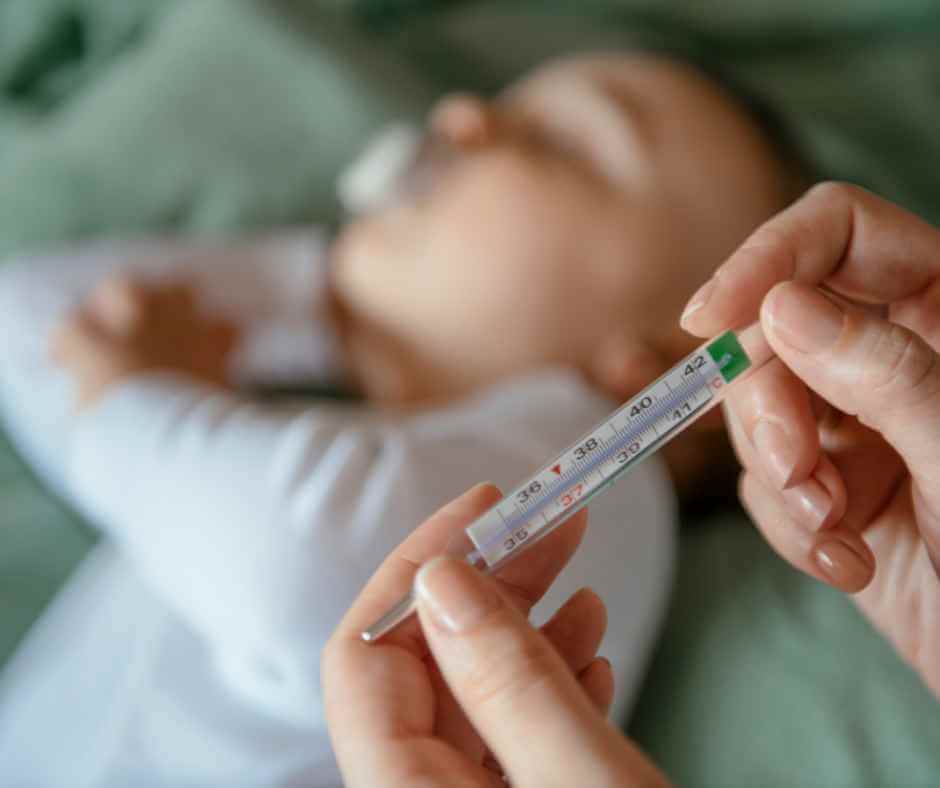
Are there any long-term effects of febrile seizures?
Although febrile seizures are generally harmless, there is a small risk of developing epilepsy later in life. If your child has a family history of seizures, they may be more likely to experience long-term effects from a febrile seizure. If your child has a febrile seizure, it’s important to talk to their doctor about the risks and what you can do to minimise them.
Febrile convulsions are a type of seizure that can occur in children when they have a fever. Although they can be scary for parents to witness, febrile convulsions are generally harmless and do not cause any long-term damage. If your child experiences a febrile convulsion, it is important to stay calm and contact your doctor immediately. With prompt treatment, your child will make a full recovery and will not experience any lasting effects from the seizure.
Want more? We’ve got you covered…
Our Baby First Aid Courses
Our baby first aid courses are available in person in your home and online. We run classes in your home with groups of 2, 4 or up to 10 in Sydney & Melbourne and you can book in 3 easy steps!
- Pick your class
- Follow the prompts to purchase
- We will contact you within 24 hours to lock in your date of choice
Our First Aid Certificate Courses
We run most of the popular first aid courses Australia wide. HLTAID011 Provide First Aid, HLTAID009 Provide CPR, HLTAID012 Provide First Aid in an Education & Care Setting, RAMOAP (anaphylaxis), Mental Health first aid and CPR/LVR to name a few.
Book your public spot online or contact us if you have a group of 5+ people for onsite training.
Here are some other resources you may enjoy!
FREE GUIDE: Your Virtual Baby First Aid Kit
FREE GUIDE: Introducing Common Allergy Foods & Allergic Reactions
FREE Workplace Emergency Preparedness Plan: Grab this at the bottom of every page!
Follow for baby & child first aid and allergy info and tips on Instagram & TikTok, all @thenestcpr
